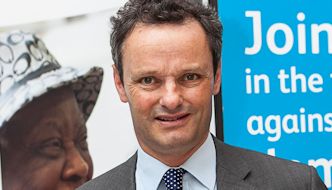My prime objective as MP for Waveney is to help attract new jobs and investment to Lowestoft and the surrounding area. Having listened carefully to the feedback from local businesses it is my view that this goal is best achieved if the UK remains in the EU.
Being part of Europe means businesses in East Anglia get free access to a market on our doorstep, which has over 500 million customers. We are able to trade with no tariffs or barriers and it is estimated that 53% of goods exported from East Anglia go to the EU; business which is worth approximately £11.4 billion to the regional economy.
Sealite United Kingdom Limited, who manufacture marine aids for navigation, had secured approval from their Australian parent company to build a factory in the Enterprise Zone on the South Lowestoft Industrial Estate. However this investment has now been put on hold and there is a concern that if the UK leaves the EU, Lowestoft may lose out on this investment to a country within the EU.
Thirty years ago in the 1980s the UK negotiated hard to get rid of trade barriers in Europe and to create the Single Market. In my opinion it would be a great pity if the youth of today had to do the same thing all over again from outside the EU.
Fishing, which was the cornerstone of the Lowestoft economy, has been hit hard in recent years and the industry is a shadow of its former self. There are many reasons for this decline including the centralised way in which the Common Fisheries Policy has been managed in the past, though in my opinion the main reason is that successive British Governments have managed the quota system in a way that allowed fish previously sold in Lowestoft to be landed elsewhere; in Scotland and The Netherlands. The reformed CFP which came into operation in 2014 provides for more local management of fisheries, the elimination of discarding and the opportunity to fish sustainably in a way that benefits local fishing communities such as Lowestoft.
The Government have done some work to secure the latter objective, but more is required and I am campaigning to get them to do this.
In many respects the UK has a special status in the EU which I believe it would be unwise to give up. We will not be joining the euro, we are keeping our own border controls and there will be tough new restrictions on access to our welfare system for new EU migrants. The Prime Minister’s negotiations at the beginning of the year were an important step forward in protecting Britain from further political integration, though in my opinion more reform is required to the EU in order to provide greater flexibility and accountability so that the twenty-eight nations can work more effectively together in the best interest of the their respected citizens.
This working together is very important at a time of threats from so many different directions. The cornerstone of our defences is NATO, but the EU is vital to our security. It is important that we work closely and share intelligence with our European neighbours so as to fight terrorism and counter border crime.
The debate over the past few months has been vigorous and at times undignified. The rival camps have on occasions painted pictures in stark colours of black and white. As is so often the case the reality is a darker or lighter shade of grey. Whatever the nation decides on Thursday a lot of hard work will be required. I strongly believe that this should take place within the EU so as to secure the best long term deal for the UK and its citizens, young and old, in terms of prosperity and peace.

